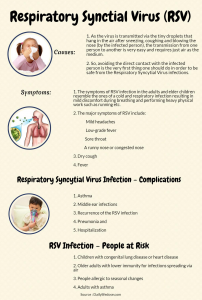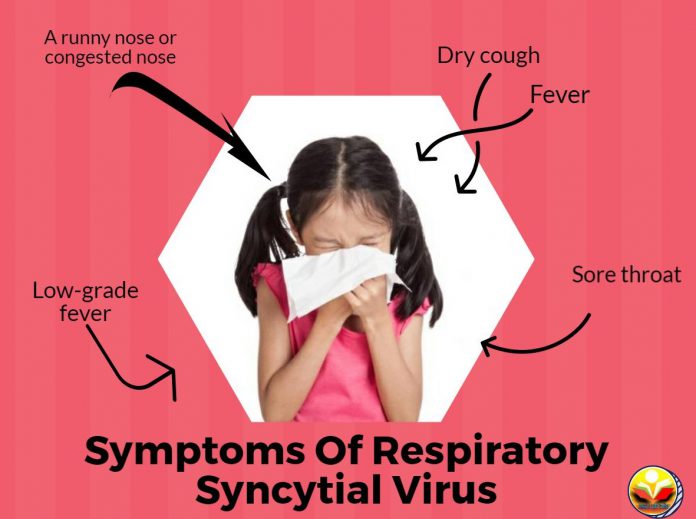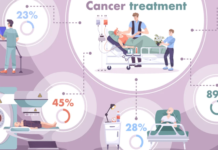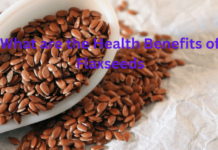Respiratory Syncytial Virus or RSV is a Syncytial virus that affects humans and causes infections of the respiratory tract leading to cold like symptoms and bronchiolitis. What should eat to avoid various disease?
More serious effects are observed in the infants in children below 2 years of age, and they need hospitalisation and immediate medical assistance in such cases. As per the globally available data, almost every kid has had the RSV infection until 2 – 3 years of age in the US; the major occurrences starting in fall and ending by spring. Though the infection itself causes immunity against the further occurrence, some might get infected again and may require medical help such as oxygen therapy and supportive care. The virus spreads through tiny droplets that hang in the air after sneezing, coughing and nose blowing.
Respiratory Syncytial Virus (RSV) – Symptoms & Causes:
Causes:
- As the virus is transmitted via the tiny droplets that hang in the air after sneezing, coughing and blowing the nose (by the infected person), the transmission from one person to another is very easy and requires just air as the medium.
- So, avoiding the direct contact with the infected person is the very first thing one should do in order to be safe from the Respiratory Syncytial Virus infections.
- The lifetime of the virus is very long even if it is sitting on the hard objects like counter-tops, railings, toys etc.
- Though the infected virus can continue to spread from the infected person to the healthy ones for weeks; the initial days are the most infectious.
Symptoms:
- The symptoms of RSV infection in the adults and elder children resemble the ones of a cold and respiratory infection resulting in mild discomfort during breathing and performing heavy physical work such as running etc.
- The major symptoms of RSV include:
Mild headaches
Low-grade fever
Sore throat
A runny nose or congested nose
How to avoid viral fever with home remedy
Dry cough
- The above-mentioned symptoms are the common ones and are found in the adults and elder children; however, the infants and younger children might show a totally different set of symptoms, the severity of which will depend on the extent of the infection.
- In fact, the Respiratory Syncytial Virus causes bronchiolitis and pneumonia in infants and children under 1 year of age. Other symptoms of RSV infection in severe cases include:
Severe cough
Rapid breathing
Difficulty in breathing while lying down
Cyanosis or blue coloration in the skin owing to lack of oxygen being supplied to the body parts
Deficiency of what food and minerals can cause your child low growth rate
Fever
Wheezing (infant emits a high pitched sound while exhaling)
Irritability and Lethargy
Poor feeding and Cough etc
Having read about the causes and symptoms of the RSV Infection, let us find out when you need to consult a doctor in case this happens.
- As the severe RSV infections occur in the infants and young kids, the medical help is required if your child is experiencing difficulty in breathing and has cyanosis. Especially, if the bluish coloration is on the lips and nail beds, you should immediately seek medical assistance and consult the doctor.
RSV Infection – Diagnosis:
- Diagnosis of the RSV infection is done via the X-rays and of the chest in which the presence of bilateral perihilar fullness is readily visible.
- Blood tests for running a count of WBCs.
- Checking the secretions from the nose or mouth of the infected persons.
- In other cases, the physician can conduct a skin monitoring test for the oxygen level which is called pulse oximetry.
Do you have the deficiency of vitamin C?
RSV Infection – Treatment:
- Generally, the medical assistance in terms of medicines and supportive care etc are prescribed in the cases of severe infections.
- The fever medicines such as Tylenol etc are administered for the fever and saline or nasal drops are prescribed for the choked nose.
- Dehydration is administered by providing fluids which may be via the Intravenous route as well.
- Mechanical ventilation and humified oxygen are also used in cases of severe infections.
- An anti-viral medicine named as ribavirin can also be administered.
Respiratory Syncytial Virus Infection – Complications:
The various complications that are associated with the RSV infection are:
- Asthma
- Middle ear infections
- Recurrence of the RSV infection
- Pneumonia and
- Hospitalization
Why Vitamin B is necessary to avoid various disease
RSV Infection – People at Risk:
By 2 years of age, almost all the children (in the US) are believed to be affected by the RSV infection. In tropical areas, the rate of infection and the age of infection will be determined by the rainy season in which the infections run wild.
The major subjects under the risk of RSV infection are:
- Children with congenital lung disease or heart disease
- Older adults with lower immunity for infections spreading via air
- People allergic to seasonal changes
- Adults with asthma
- Infants born prematurely
- Immunodeficiency subjects such as the patients of AIDS, leukaemia, and people with certain organ transplantations
- People undergoing transplantation and chemotherapy













When my son was young, he often suffered from this type of illness. The doctor said that when he turned 6, everything would improve because his immune system would improve. And it actually happened. Now he is very rarely ill.